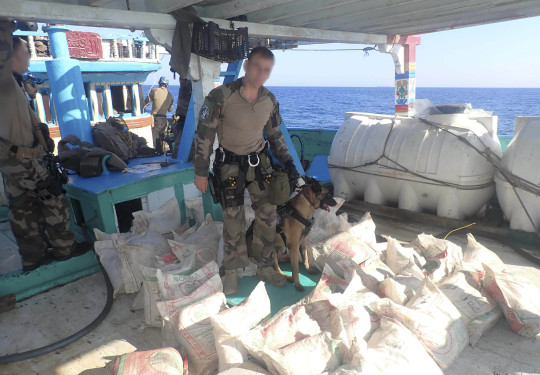Interceptions by NZ-led naval task force seize $US26 million in illegal drugs
During an intensive period of operations in November, units under the New Zealand-led Combined Task Force (CTF) 150 command completed eight successful interceptions in the Indian Ocean, which resulted in the seizure of US$26 million of illegal drugs.
10 December, 2021
CTF 150 is one of the Combined Maritime Forces’ three task forces in the Middle East and has been under the command of the Royal New Zealand Navy (RNZN) since July 2021.
Commander of the CTF 150, Captain Brendon Clark, RNZN, said successful interceptions were the culmination of coordinated efforts of personnel, ships, helicopters, fixed wing aircraft, and unmanned aerial vehicles from across the Combined Maritime Forces nations. This was a complex task but worthwhile, he said.
“By intercepting illicit drugs close to the source, we are preventing narcotics from reaching markets around the world. This stops the finances raised from illegal narcotics sales being used to fund criminal and terrorist organisations.” said Captain Clark.
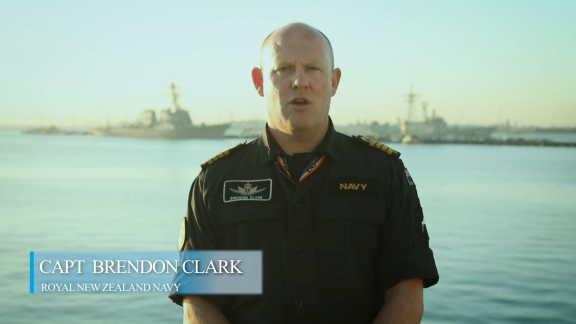
Royal New Zealand Navy's CAPT Brendon Clark, Commander of CTF 150
The eight interceptions in November led to the seizure of 975 kilograms of heroin, 523 kilograms of methamphetamine and 4,244 kilograms of hashish, with a combined local value of $US26 million.
Captain Clark said that the overall value of drugs seized since he took command in July was now more than $US46m, and rising week by week. These seizures have contributed to a record breaking year for CTF 150. The total for the year is now over $US189m of illegal drugs seized and destroyed by the many warships patrolling the region.
Captain Clark said the value of narcotics increases as they reach their ultimate destination. Around the world, street value varies, but it is always much higher than the figures reported above.
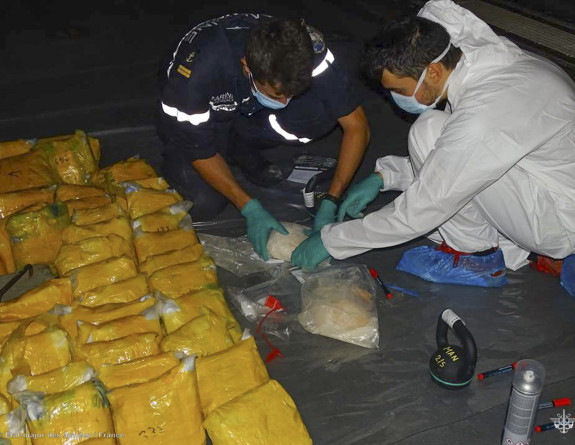
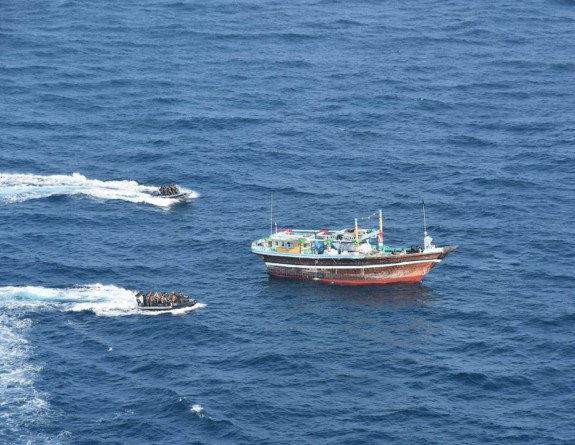
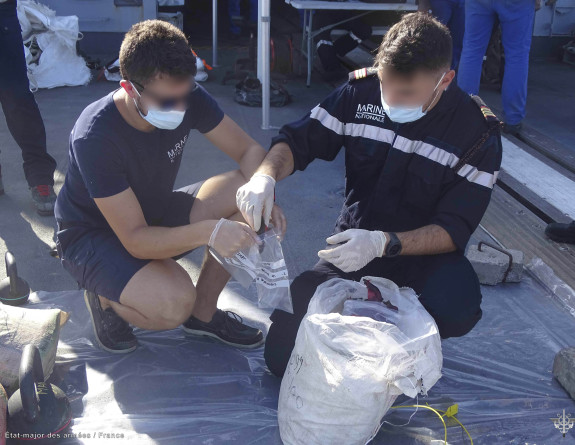
Sailors on French Frigate FS Floreal interdict vessels in the Indian Ocean and inventory illicit drugs seized.
“From a New Zealand perspective, had the narcotics from all of the seizures made during NZ’s time in command made their way to New Zealand, they would have a street value of $1.826 billion in New Zealand dollars.”
So far during 2021, CTF 150 has seized and destroyed 6,550 kilograms of heroin, 4,052 kilograms of methamphetamine and 56,834 kilograms of hashish. The success was highlighted by the fact that this equated to more than three times the methamphetamine than in any other year since 2016, and the largest amount of heroin since the task force was established in 2002.
Captain Clark said operations were ongoing and in the last two weeks, successful interceptions by French ships working for CTF 150 had resulted in the seizure of more than 1000kg of heroin. This included 480kg of heroin being seized on 6 December.
“CTF 150’s mission is an enduring one. Operations continue 365 days a year. On Christmas Day, as every day, the staff will be on watch providing support and direction to our ships and aircraft conducting operations at and over the sea to ensure that illicit activity is suppressed, and that the sea lanes remain a safe and law abiding domain,” he said.
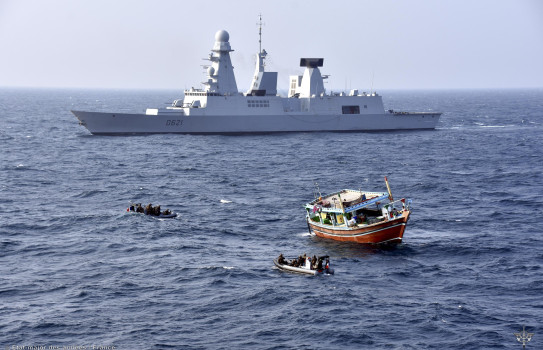
Sailors on French destroyer FS Chevalier Paul interdict a dhow in the Indian Ocean.
CTF 150 is commanded and staffed by a multinational team in Bahrain and includes New Zealand Navy personnel and personnel from the US Coast Guard, and Australian, Singaporean and Bahrain militaries.
CTF 150 conducts maritime security and counter-terrorism operations at sea, outside the Arabian Gulf, to disrupt criminal and terrorist organizations and their related illicit activities, including the movement of personnel, weapons, narcotics and charcoal.
Combined Maritime Forces is a multinational naval partnership of 34 nations that includes three task forces. It exists to uphold rules-based international order by countering illicit non-state actors on the high seas and promoting security, stability, and prosperity across approximately 3.2 million square miles of international waters encompassing some of the world’s most important shipping lanes.
